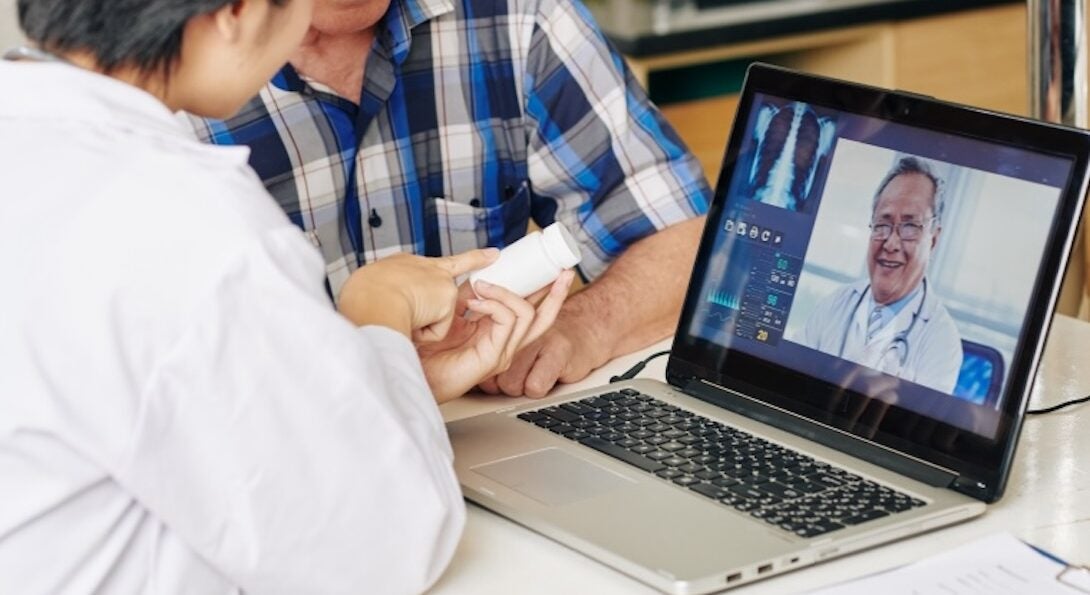Leveraging Health Innovation and Technology to Advance Health Equity

Health innovation and technology hold transformative power for advancing health equity and improving population health in today’s interconnected world. By establishing key partnerships and leveraging new technologies, we can create more inclusive and effective healthcare systems that address the needs of systemically minoritized groups, ensuring quality care is available for all individuals. Recognizing that healthcare in the U.S. is expensive, complicated, and challenging, embracing innovative solutions and promoting stakeholder engagement opportunities can serve as a catalyst for change and lead to visible improvements that have a sustained impact on overall well-being.
One of the most impactful advancements in healthcare technology has been the rise of telehealth and remote care. Telehealth has transformed the delivery of healthcare services by breaking down geographical barriers and making healthcare more accessible to people in remote and underserved areas where access to quality care has often been limited. Patients can consult with healthcare providers without the need for long-distance travel, significantly reducing the burden of seeking care. Particularly in urban and rural communities, telehealth services have increased rates of visits and follow-up appointments, bridging the care and treatment gap and improving overall health outcomes. During the COVID-19 pandemic, telehealth provided a safe and convenient way to receive medical attention, ensuring continuous care while minimizing the risk of virus transmission for the most vulnerable populations, including older adults and individuals with chronic diseases.
Telehealth is a critical tool in addressing health disparities that disproportionately affect historically marginalized and minoritized communities. However, this solution is not without its complications. According to the American Medical Association, 15 percent of U.S. adults did not own a smartphone in 2021, and more than one in five adults did not have a broadband internet subscription at home, both of which are essential for accessing telehealth services. Many individuals, particularly those in underserved communities, may also lack the skills and knowledge to effectively use digital health tools. By investing in digital health literacy programs, we can empower individuals with the skills and knowledge needed to improve their health, make informed decisions, and ensure that the benefits of telehealth are accessible to all.
Limiting barriers to participation and ensuring technological advances are user-friendly and accessible to those who may face difficulties with technology is crucial. By centering the needs of the community and ensuring that all communications are culturally appropriate and available in relevant languages, we can effectively reach target audiences.
Additionally, community outreach programs play a vital role in raising awareness about the benefits of these technologies and how to access them. By fostering digital health literacy, we can ensure that everyone, regardless of their background, can benefit from health innovation.
The advancement of health innovation and technology to promote health equity requires collaboration between academia and industry. Academic institutions are often at the forefront of groundbreaking research, generating new knowledge and technologies. However, translating research into practice can be time-consuming. When academia partners with industry, there is an opportunity to accelerate the transition from research to practical applications that benefit the public. Industry brings the expertise and resources needed to scale these innovations, ensuring they reach wider audiences more quickly and effectively.
Collaborative efforts can lead to the development of technologies and solutions that are both scientifically sound and commercially viable. These partnerships can also foster interdisciplinary approaches, combining the strengths of different fields to address complex health challenges. By working together, academia and industry can speed up the development and deployment of health innovations, making significant strides in achieving health equity.
The integration of health innovation and technology is critical for advancing health equity and improving population health. By forming strategic partnerships and embracing technological advancements, we have the potential to improve healthcare systems that consider the needs of historically marginalized groups, ensuring equitable access to quality care. The evolution of telehealth and remote care illustrates the potential of these innovations to break down barriers and improve health outcomes. However, to fully leverage these advancements, we must address digital health literacy and ensure that technological solutions are accessible and user-friendly for all. Collaboration is essential to accelerate the translation of research into practice, fostering interdisciplinary approaches to tackle complex health challenges. By working together, we can achieve significant strides in health equity, ultimately leading to improved well-being for all.
Kristin Roadman serves as the Director of Innovation and Entrepreneurship at the University of Illinois at Chicago (UIC), where she leads efforts to foster innovation across the university. She oversees a portfolio of programs and strategic partnerships designed to expand entrepreneurial opportunities and advance health equity through innovative solutions. Before joining UIC, Kristin worked as a program officer for the U.S. Forest Service. She began her federal career as a Presidential Management Fellow and has since held roles focused on project management, partnerships, and business operations with various federal agencies in Illinois and Oregon.
Kristin also has extensive experience in workforce development, having served as the Director of Talent Programs for the Chicagoland Chamber of Commerce. In this role, she managed training and workforce development initiatives to prepare and connect local and diverse candidates with employment opportunities at Chicagoland businesses. Kristin holds master’s degrees in public administration from UIC and public health from Drexel University. She is also a certified Project Management Professional (PMP).